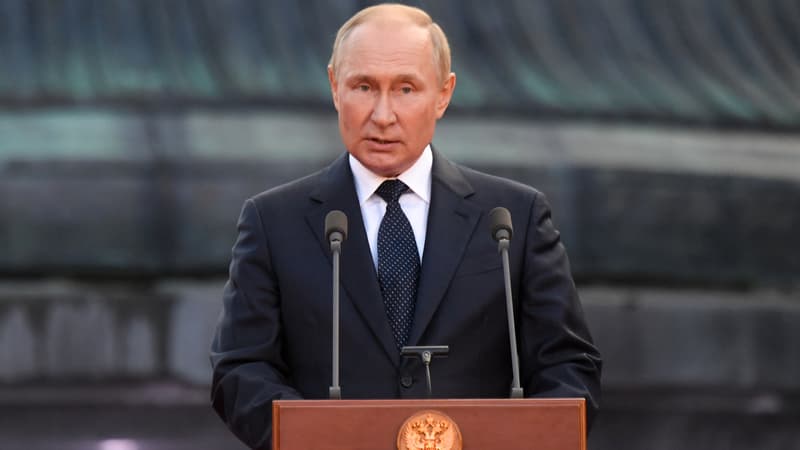Since Vladimir Putin’s announcement of a partial mobilization in Russia to send new troops to Ukraine, the signs of protest, scarce until now, have multiplied in the country.
Until September 21, the day of the Russian president’s speech, demonstrations took place in some thirty Russian cities, according to OVD-Info, an NGO whose work consists in particular of monitoring the demonstrations. The NGO recorded more than 1,300 arrests linked to these demonstrations this afternoon.
Since then, tens of thousands of people have fled abroad. In reaction, the government information portal announced on its website on Wednesday that Russia will no longer issue passports to those mobilized by the military. Russians need an international passport to travel to most foreign countries. However, they can go to Armenia, Belarus, Kazakhstan and Kyrgyzstan with their only internal passport, equivalent to an identity document.
A “turning point”
A guest on BFMTV this Monday night, Alexandre Melnik, a former diplomat in Moscow, believes that Russia is currently experiencing “a turning point”. The flight of tens of thousands of Russians “proves the negligence, the disorder that exists at the top of power. It is agony,” according to him.
“Putin does not have a roadmap, he is trying to save his skin but the ground is giving way under his feet,” explains the diplomat.
“Putin calls for patriotism, but the mayonnaise is not good, there is no longer any patriotic impulse,” explains Alexandre Melnik again.
For Anna Colin Lebedev, a professor at Paris Nanterre University, the mobilization decided by Vladimir Putin marks an important political turning point in Russia.
“Like many authoritarian regimes”, the Russian regime “fosters the passivity of the population” since Putin came to power in 1999: “Vote if they ask you, approve the actions of power if they ask you, but little else”, he explains. the specialist in post-Soviet societies on Twitter.
However, this sudden mobilization is “more than a scare: it is an earthquake for Russian society.”
“Its non-selective nature – which the Russians will gradually discover – makes every family vulnerable. The very foundations of the social contract are shaky: the Russians have not adhered to it,” she writes.
In fact, while those with “relevant” military experience or skills were mobilized, some combat-age, sick, or otherwise exempt profiles were eventually called up.
Putin ousted from power?
The researcher says that she does not know what impact this will have, since the Russian repressive apparatus is powerful in the face of protest. If she finds it “unlikely” that current events will lead to a shift in power from the streets, they will certainly have an effect on Russian public opinion. “Discontent is likely to increase, as well as conflict between the Kremlin and its peripheral elites, who will be responsible for the mobilization,” she said.
Some are even advancing as to a possible departure date for Vladimir Putin. “I am convinced that he will be removed from power before the end of October, late autumn at the latest,” David Gaüzère, director of the Center for the Observation of Central Asian Societies, told the office. He could be forced to leave the presidency by “a coup that will come from the military seraglio, because the democratic opposition has been decimated in the country.”
“But beware, warns the specialist, Putin’s expected departure will not necessarily mean the end of Putinism or even the end of the war in Ukraine.”
Source: BFM TV


